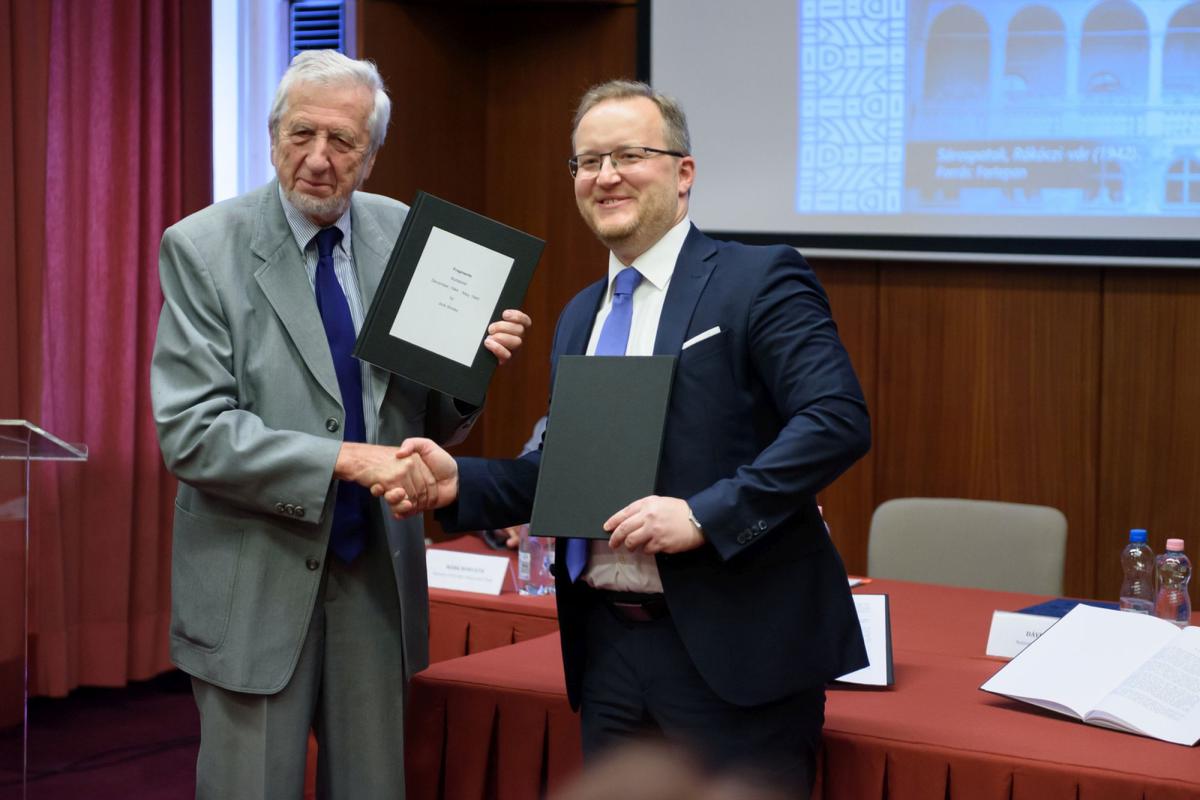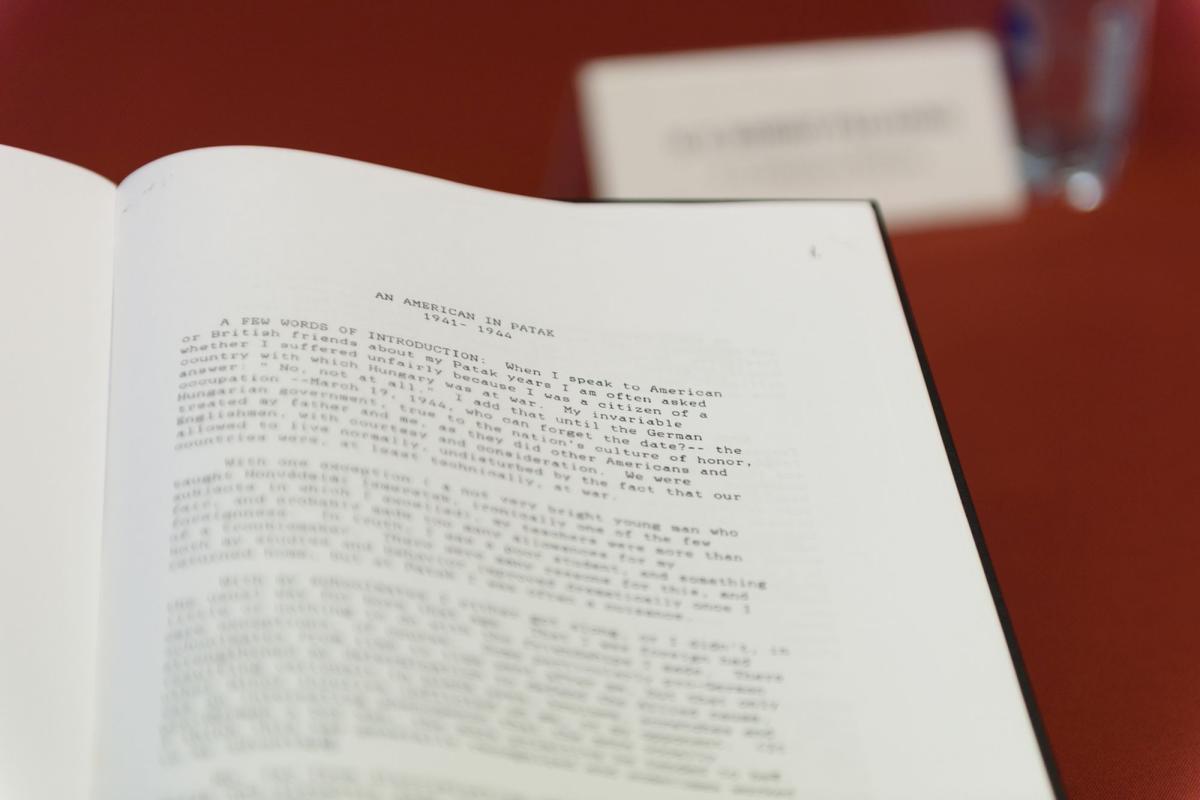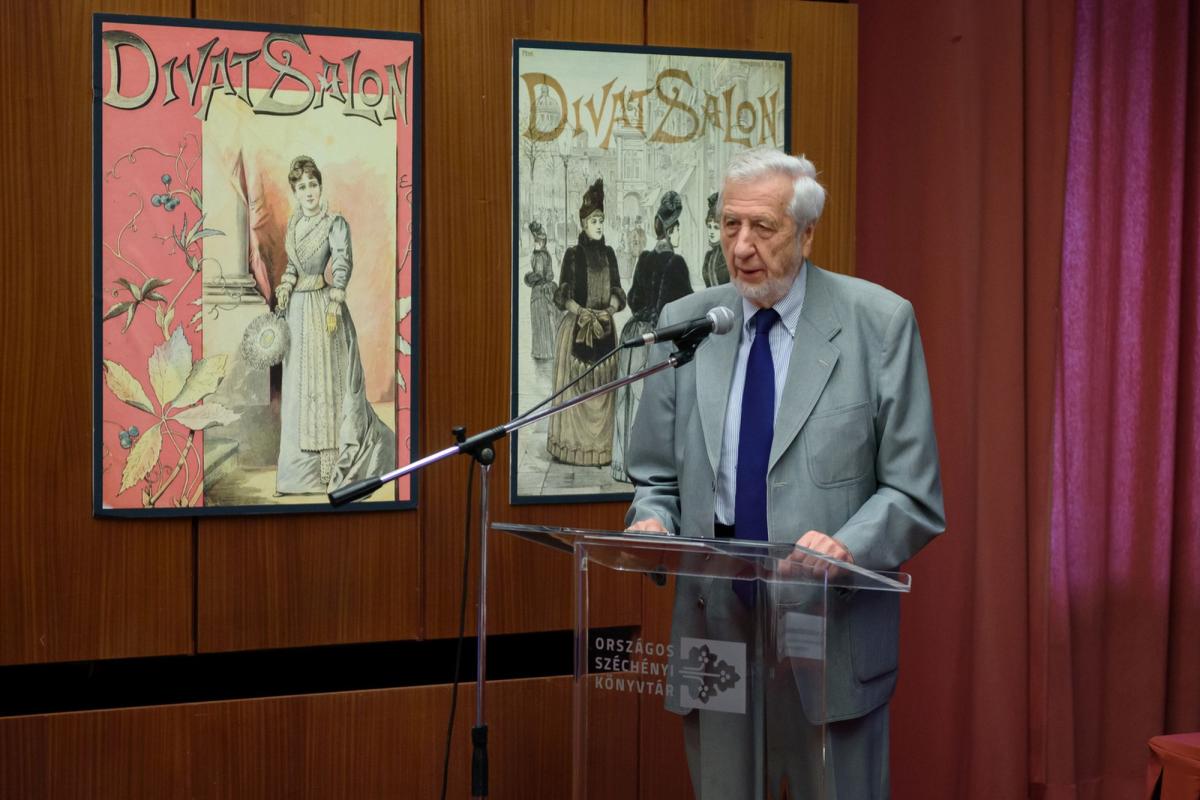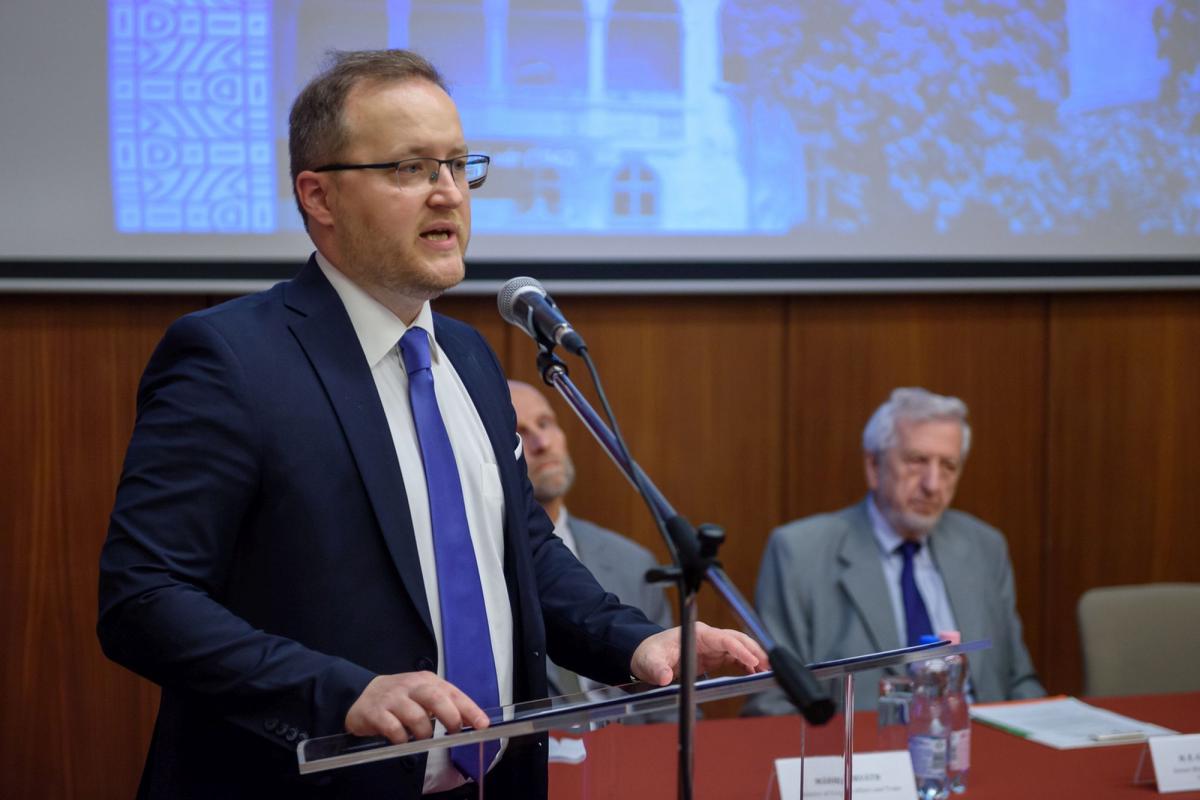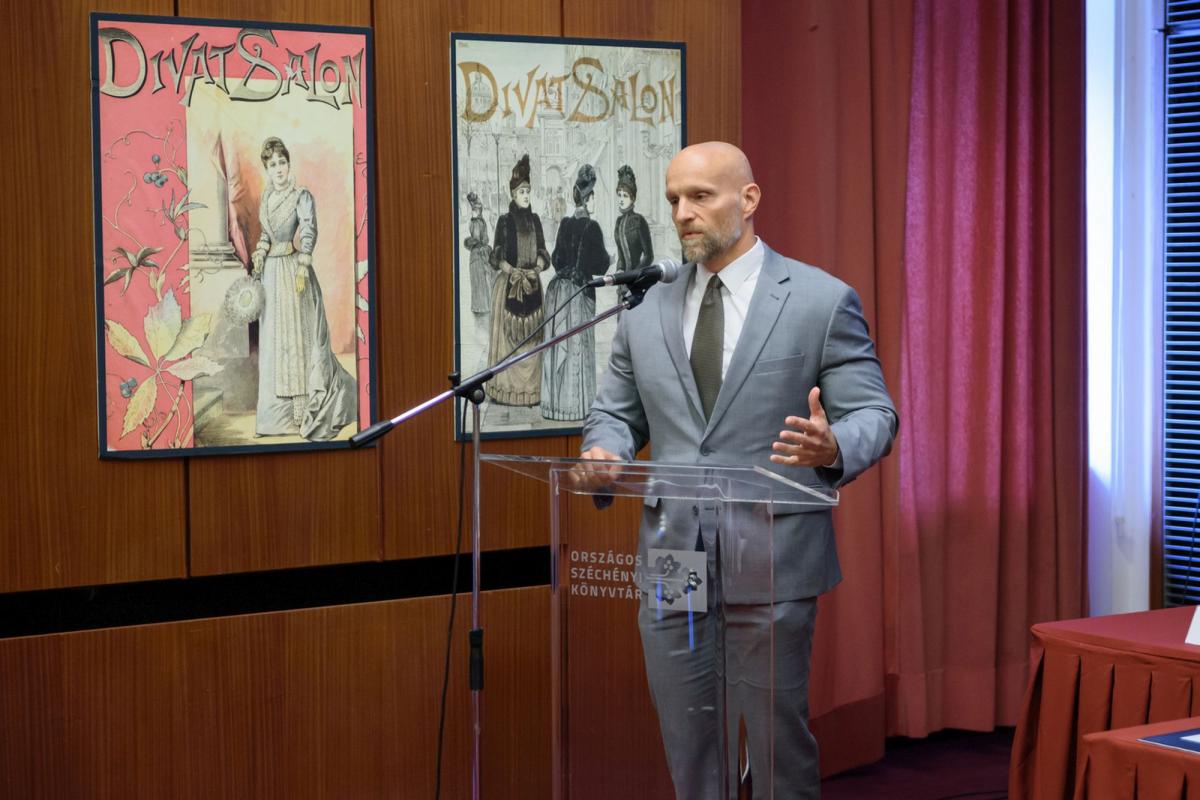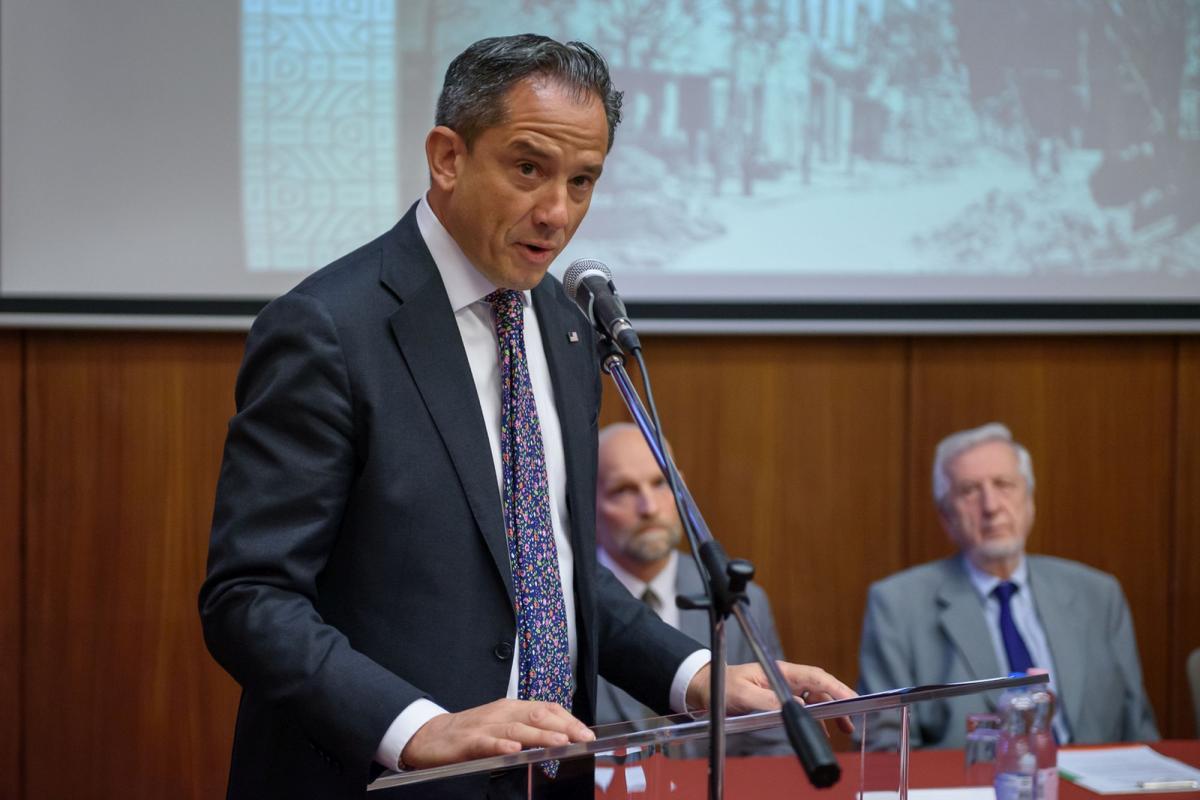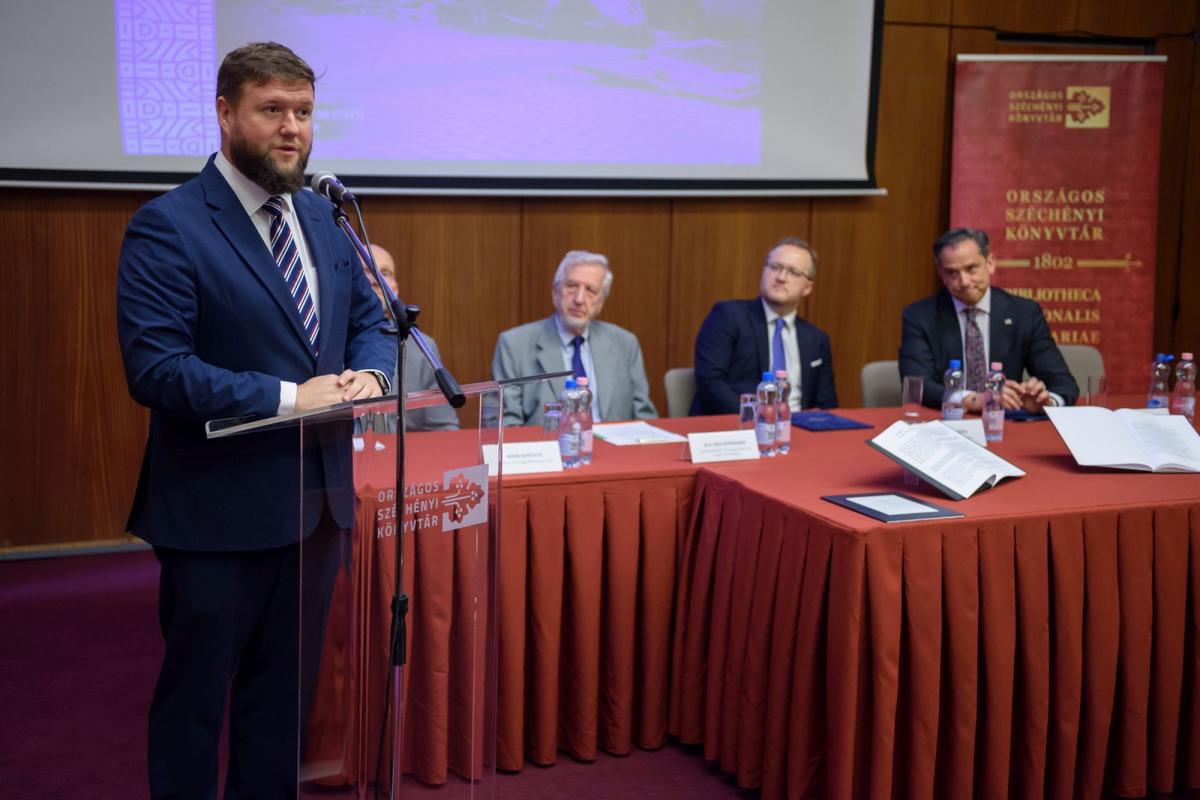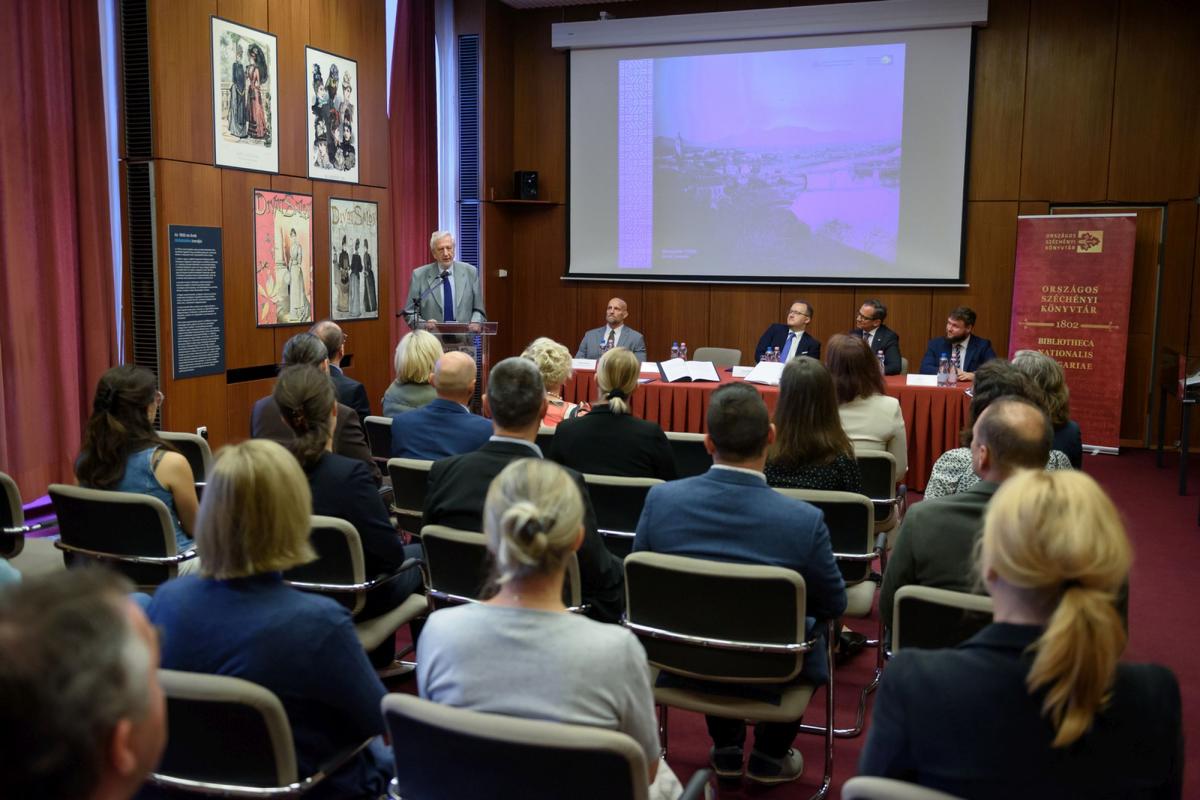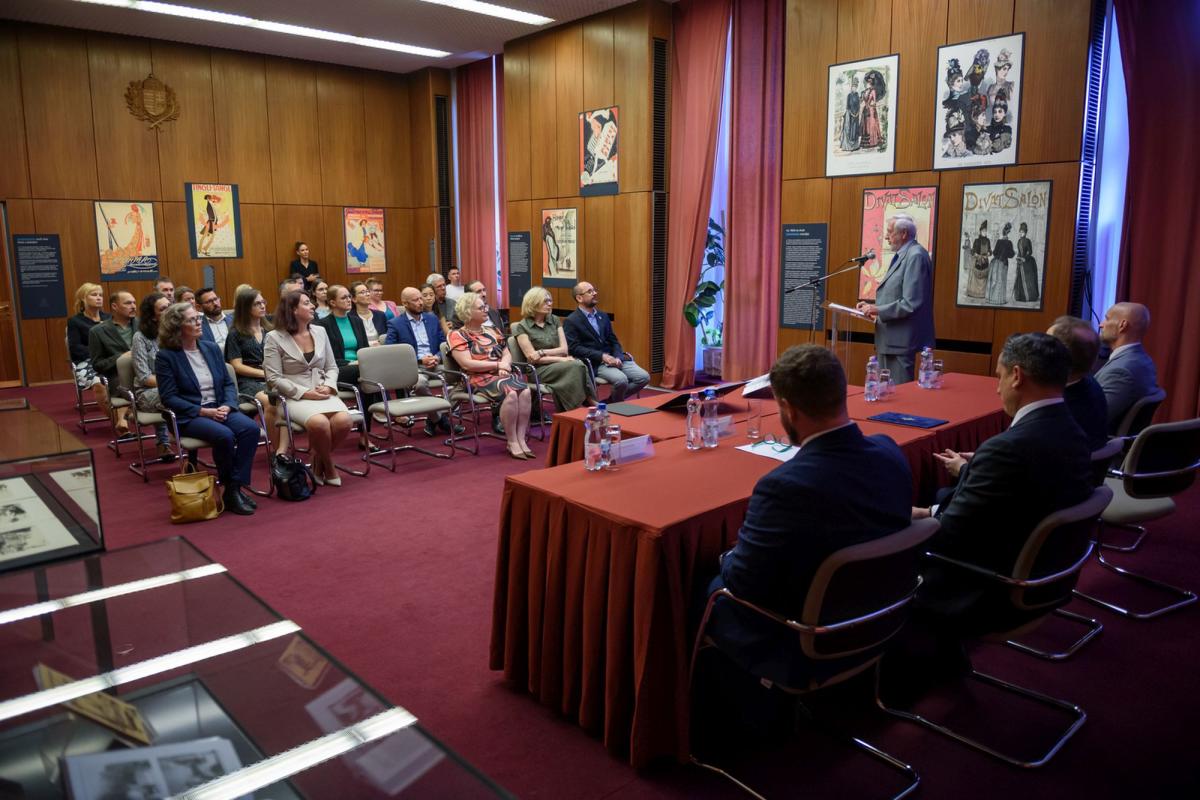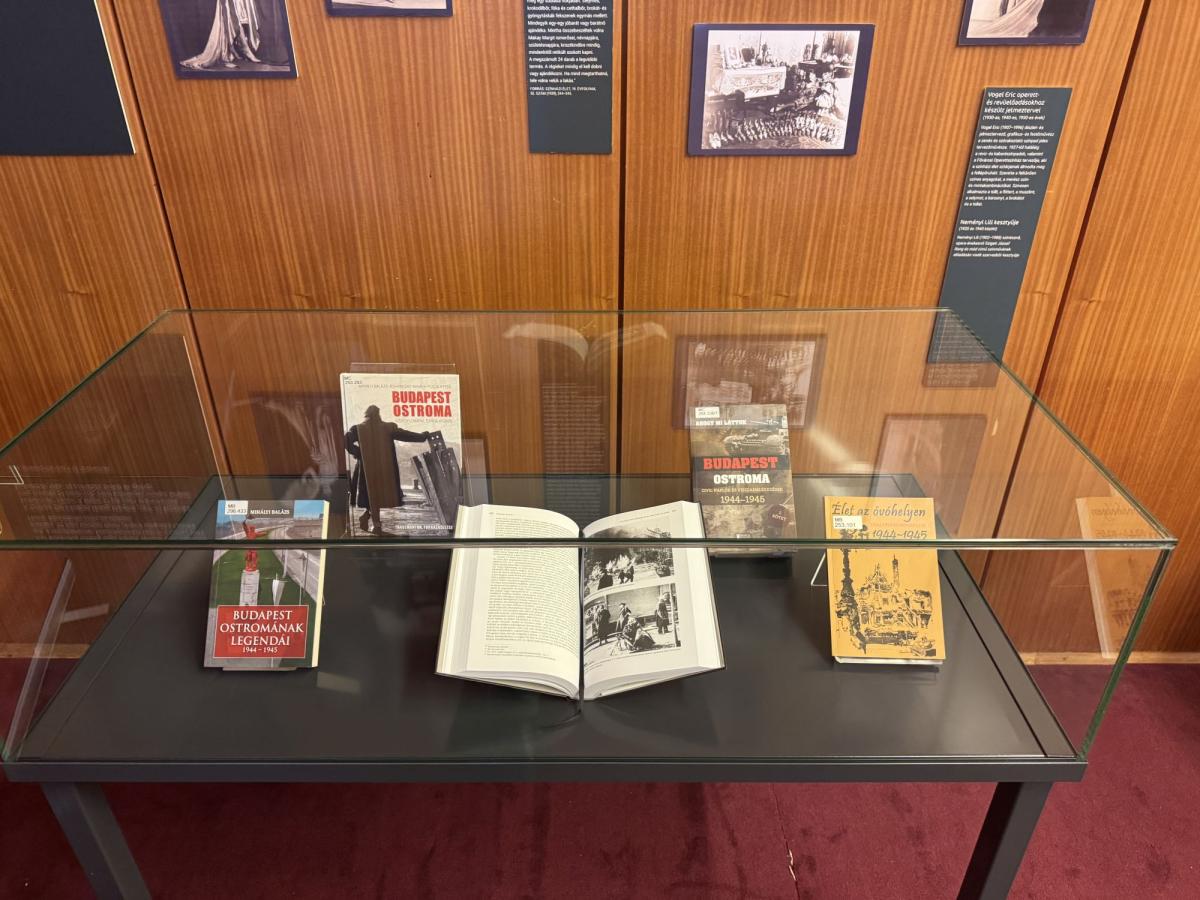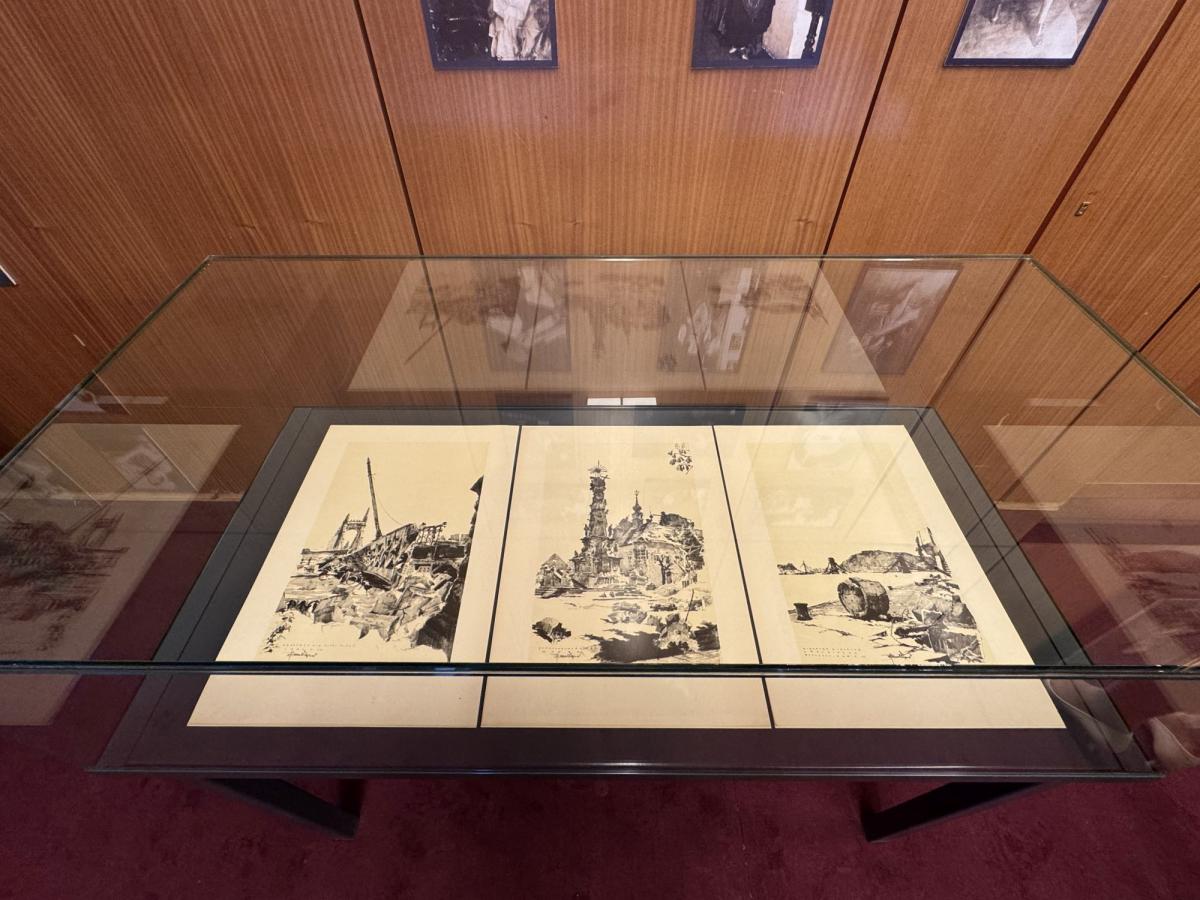
Memoirs of retired ambassador John William Shirley in the National Library
On Wednesday, 10th September 2025, during a ceremonial event, the National Széchényi Library accepted the memoirs of retired U.S. Ambassador John William Shirley (1931–) and documents related to the Sárospatak Scholarship Foundation. The event was attended by several diplomats and government officials.
The formal handover was facilitated by Géza Jeszenszky, former Minister of Foreign Affairs and Ambassador, who has long maintained a close relationship with Ambassador Shirley. In addition to Jeszenszky, speeches were delivered by Dávid Rózsa, Director-General of the National Széchényi Library; Robert Palladino, Chargé d’Affaires at the U.S. Embassy in Budapest; Máté Vincze, Deputy State Secretary of the Ministry of Culture and Innovation; and Márk Horváth, representative of the Ministry of Foreign Affairs and Trade.
Dávid Rózsa emphasized that Ambassador Shirley's personality reflects someone capable of strategic thinking, managing large systems, and building cultural and diplomatic bridges.
Géza Jeszenszky highlighted that although Shirley — known as "Jock" to his friends — could not be present, his life story and personal presence were still palpable. As he explained, Shirley, a young American stranded in Hungary during World War II, became not only a witness but also a participant in history, forming lasting friendships and a sense of commitment that shaped his entire life.
Robert Palladino noted that Ambassador Shirley’s memoirs on the 1944–1945 siege of Budapest go beyond personal recollection — they are a human testimony to one of Europe’s darkest periods. He recalled that Shirley, at the age of fourteen, made the decision to stand against tyranny — a commitment that defined his path both as an officer in the Air Force and later as a respected diplomat. This donation ensures that his memories and reflections remain accessible in the national library of Hungary and strengthens the ties between Hungary and the United States.
Máté Vincze spoke about the shared values of freedom, sovereignty, and autonomy between the Hungarian and American peoples, values for which both nations have fought throughout history. He also reminded the audience of the enduring American support for Hungary, exemplified by the return of the Holy Crown to Hungary during Jimmy Carter’s presidency.
Márk Horváth declared that Hungarian–American relations are currently in their golden age — political, economic, and cultural ties between the two nations have never been stronger than they are today.
In his memoir, John William Shirley recalls his childhood experiences in wartime Hungary, which left a lasting mark on him and solidified his anti-communist commitment. Beside his records of the siege of Budapest, he also writes about how his childhood reading and admiration for Hungarian actress Katalin Karády deeply influenced him. During his student years at the Sárospatak Reformed College between 1940 and 1944, Shirley became fluent in Hungarian. After the regime change, he maintained close ties with his former classmates. This connection led to the founding of the Sárospatak Scholarship Foundation, which he personally managed for many years before successfully passing it on to the next generation and the community of scholarship recipients. The mission of the foundation has always been to support talented students in Sárospatak who face financial hardship. For his work, Shirley was awarded the Officer’s Cross of the Order of Merit of the Republic of Hungary in 2000.
The J. W. Shirley Collection established at the National Széchényi Library includes not only the twenty-page memoir but also key documents and the history of the foundation, as well as the speech delivered by Robert Palladino — ensuring that the ambassador’s life, career, and connection to Hungary will be preserved for researchers and interested readers alike.


